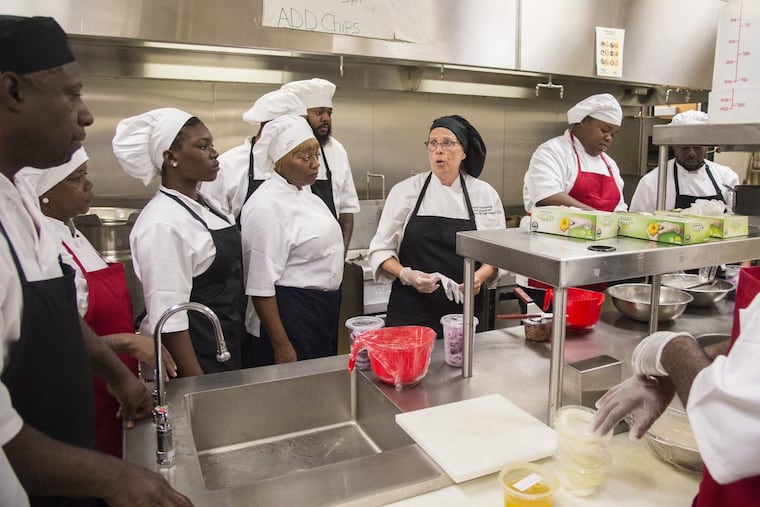Philly removes admissions standards for trade schools
It just got easier to gain entry to the city's career and technical education schools. Officials say it's a move to promote equity; alumni worry their schools will be weakened.

For years, eighth graders across Philadelphia who wanted to attend career and technical education schools and programs needed good attendance and behavior records. They could have no D's on their report cards.
Each year thousands were rejected.
On Tuesday, the district announced plans to do away with those standards. Now, any student who wants to attend a program at one of 31 high schools has a shot at admission through a lottery.
It's a move that officials say promotes fairness and alumni say is a weakening of the affected schools, which allow students to learn trades such as welding and cosmetology, or to gain skills that lead them to postsecondary schools.
"This is purely about equity for us," said Shawn Bird, the district's chief schools officer. "This is about providing options for kids.
A recent report by the Pew Charitable Trust found that some students who meet admissions requirements for the city's selective high schools never apply to them; Bird said that report was a main driver of the decision, which affects current eighth graders now applying to high schools for the 2018-19 school year.
Overall, the report found the city's selective high schools don't reflect the city's population at large — they have higher percentages of white and Asian students and lower percentages of students living in poverty, learning English, and receiving special-education services.
"We know that kids in middle school make mistakes," Bird said. "We don't want that to be a barrier for them."
Bird, who came to Philadelphia this year from California, said this move brings the district in line with school systems nationally.
"Until I came to Philadelphia, I never heard of a CTE school having admissions requirements," he said.
Admissions criteria for Saul High School are not changing. Saul, which offers agricultural programs, is a selective admissions school like Central or Masterman, with even tougher requirements than CTE schools such as Dobbins, Randolph, Swenson, and Mastbaum.
Right now, the district has more than 6,700 students in 40 occupational fields at schools across the city.
Some of its career and technical education programs are underenrolled, Bird said, but that was not a driver. Many programs have wait lists, he said.
Carolyn Monson, a longtime Dobbins teacher and 1964 graduate of the school, is alarmed by the change.
"It's a huge problem," Monson said of the North Philadelphia school. "We run reunions and classmates come back and tell us their stories about what Dobbins did for them — people who are now doctors and lawyers and judges."
Monson, president of the Dobbins Alumni Association, is organizing graduates to lobby school officials to reverse the new policy.
"If this changes, it doesn't look well for the future," she said. "To strip away safeguards that allow students who are really interested in vocations to come to the school is a bad idea."
The change is unsettling for Emahjai Chester, 16, a junior at Dobbins. After a year at George Washington, a neighborhood school in the Northeast, Chester transferred to Dobbins to study cosmetology — and to get away from chaos at her old school, she said.
"I didn't want to go to a school where kids have behavior issues," said Chester, an A student. "I want to go to a school where kids want to learn, and to get careers."
Chester said she also fears safety may slip at her school if admissions requirements are dropped.
Bird dismissed that notion.
"I have faith in our kids and our system," Bird said. "We will put supports in place as they are necessary. We would do that at any school."